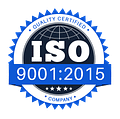Revolutionizing Healthcare: The Role of Software Development in Transforming the Industry
Introduction:
In recent years, the healthcare industry has undergone a significant transformation, with technology playing a pivotal role in enhancing patient care, improving efficiency, and streamlining processes. One of the key drivers of this change is healthcare software development. This article explores the impact of software development on healthcare and how innovative technologies are revolutionizing the way healthcare services are delivered.
I. Electronic Health Records (EHR) Systems:
One of the most notable advancements in healthcare software development is the widespread adoption of Electronic Health Records (EHR) systems. EHRs have replaced traditional paper-based records, providing a digital platform for storing and managing patient information. This not only reduces the risk of errors but also facilitates seamless communication among healthcare professionals, leading to better-coordinated care.
II. Telehealth and Remote Patient Monitoring:
The advent of telehealth solutions has enabled healthcare providers to reach patients beyond the confines of traditional medical settings. Through secure video conferencing and remote monitoring tools, patients can now consult with healthcare professionals from the comfort of their homes. This has proven especially crucial during global health crises, allowing for the continued provision of healthcare services while minimizing the risk of virus transmission.
III. Artificial Intelligence (AI) and Machine Learning (ML) in Healthcare:
AI and ML have emerged as game-changers in healthcare, offering powerful tools for diagnosis, treatment planning, and predictive analytics. Machine learning algorithms can analyze vast amounts of patient data to identify patterns and trends, aiding in early detection of diseases and personalizing treatment plans. Additionally, AI-powered chatbots and virtual assistants are improving patient engagement and providing round-the-clock support.
IV. Health Information Exchange (HIE) Platforms:
Interoperability has been a longstanding challenge in healthcare, with patient data often trapped in siloed systems. Healthcare software development has addressed this issue through the creation of Health Information Exchange (HIE) platforms. These platforms facilitate the secure sharing of patient information across different healthcare organizations, promoting better care coordination and reducing redundant tests and procedures.
V. Cybersecurity in Healthcare Software:
As healthcare becomes increasingly reliant on digital solutions, the importance of cybersecurity cannot be overstated. Healthcare software developers are investing heavily in creating robust security measures to protect sensitive patient data from cyber threats. Strict adherence to data protection regulations, encryption technologies, and regular security audits are crucial components of ensuring the integrity and confidentiality of healthcare information.
Conclusion:
Healthcare software development continues to play a pivotal role in shaping the future of the industry. From electronic health records to telehealth solutions and artificial intelligence, the integration of technology is enhancing patient care, improving efficiency, and driving innovation. As software developers continue to collaborate with healthcare professionals, we can expect even more groundbreaking solutions that will ultimately contribute to a healthier and more connected world.
Source:
https://www.osplabs.com/custom....-healthcare-software
喜欢
评论
分享
















